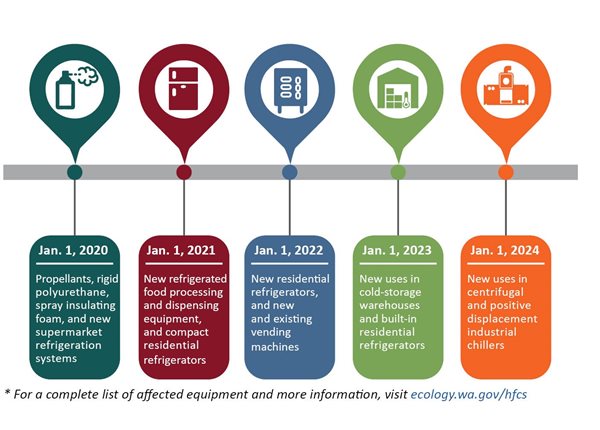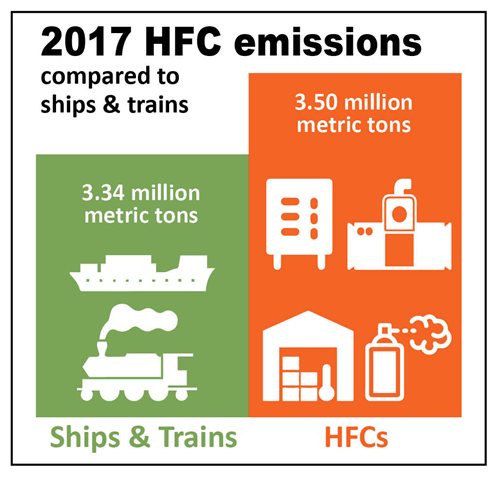Hydrofluorocarbons, or HFCs, are potent greenhouse gases that contribute to climate change at rates hundreds or thousands of times that of carbon dioxide. In 2019, Gov. Jay Inslee signed a bill that phased out many major uses of HFCs, including in refrigeration, heating and cooling, foams, and aerosol products.
Now, the Washington Department of Ecology has adopted new rules to implement that law, which by 2030 will cut greenhouse gas emissions by the equivalent of 1 million metric tons of carbon dioxide each year.
“We call these chemicals ‘climate change super pollutants’ because even a small amount of these substances can have a massive impact on our environment,” Inslee said. “There are safer, cleaner substitutes for these chemicals available, and it just makes sense to switch to those as soon as possible.” HFCs have about the same climate impact as trains and ships combined.
Today, HFCs account for the equivalent of about 4 million metric tons of carbon dioxide emissions each year in Washington. By way of comparison, that’s more than all the emissions from ships and trains in our state combined. What’s worse, the emissions from HFCs have been climbing in recent years, and were expected to grow by a third by 2035 without action.
“HFCs are some of the most potent greenhouse gases ever made,” said Laura Watson, Ecology’s director. “If we’re going to address climate change, switching to safer, cleaner alternatives to these chemicals is absolutely necessary, and we’re on track to do that.”
The 2019 law sets aggressive timelines for the phase out, with the first product restrictions kicking in Jan. 1, 2020. Ecology adopted emergency rules beginning in July 2019 to guide this initial part of the process while it worked on permanent regulations to complete the work. Now, the agency has completed that rulemaking, ensuring that Washington continues to cut HFC emissions in the years ahead.
Equipment using environmentally safer HFC alternatives is already available and should not cost more. In most cases, switching to HFC-free equipment will not take any special effort on the part of consumers, retailers or business owners, since the Washington law focuses on companies that manufacture or import HFC-containing products.



